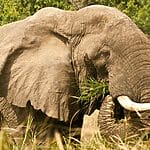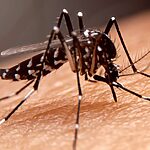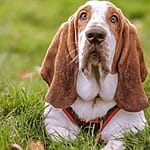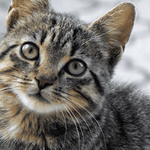Sugar gliders are adorable and engaging pets, but potential owners often worry about one key issue: do sugar gliders stink? While these small marsupials do have a natural musky scent, it shouldn’t be overpowering or unpleasant. However, there are instances when their odor can become more pronounced.
The primary culprits behind an excessive smell include an incorrect diet, inadequate litter training, and scent marking behaviors. These issues can make owning a sugar glider less enjoyable and more challenging for even the most dedicated pet owners.
In this article, we will explore the reasons why sugar gliders might start to smell stronger than usual. More importantly, we will share six effective strategies to help you prevent and manage any unwanted odors, ensuring that your sugar glider remains a delightful and pleasant companion.
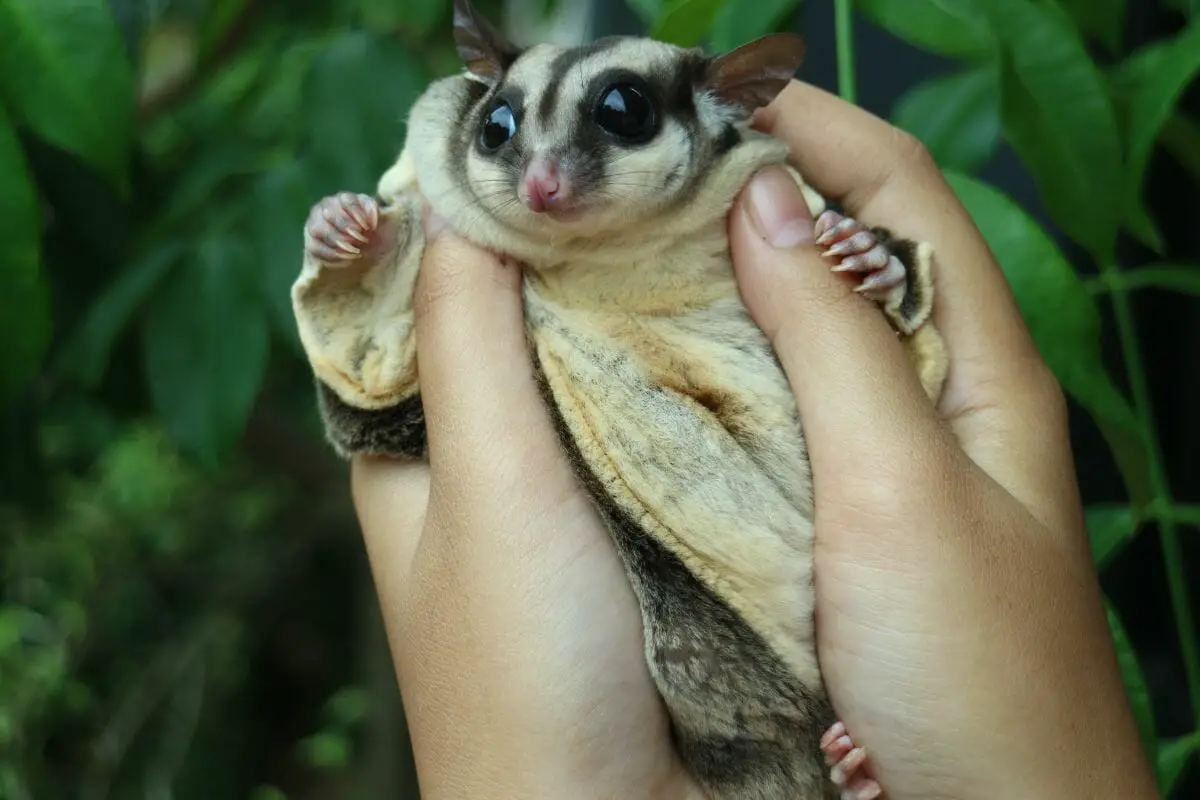
Do Sugar Gliders Stink?
As a general rule, no, sugar gliders do not stink. Like many animals, sugar gliders do have their own musky odor which is unique to them but this smell is not unpleasant.
However, most owners don’t consider this musky odor to be a ‘stink’ and it isn’t a smell that should be foul or strong enough to be considered a ‘stink’ or a problem.
This smell will always be present because sugar gliders have scent glands in their skin. This is why no amount of bathing or self-cleaning from the sugar gliders themselves will get rid of it.
In the wild, sugar gliders use these scent glands and their natural scent as a way of communicating with each other, emitting a unique musky odor.
It shows that they are present in the territory and it can also be used to signal they’re open to mating. Male sugar gliders have scent glands in three areas of their body and these can be found on the head, chest, and genitals.
Female scent gliders, on the other hand, have only two which are located at the pouch and genitals. As males have more scent glands than females they can often smell stronger than female sugar gliders do.
What Factors Make A Sugar Glider Stink?
Now let’s look at what the factors are that can make your sugar glider begin to smell stronger than it should.
Incorrect Diet
It’s very important that you feed a sugar glider a correct diet. They are very sensitive to incorrect diets and this can lead to them becoming ill and stinky.
Sugar gliders need protein but feeding them too many can make them smell like ferrets(see also: Animals That Look Like Ferrets).
You need to find a balancing act to ensure they get all of the proteins that they need but without overfeeding them with foods such as eggs, insects, and meats.
You should also be careful with how much acidic food you feed them. This is especially the case with acidic fruits such as bananas. Too many of these can lead to the sugar glider suffering from diarrhea and having a foul odor.
Not Correctly Litter Trained
Like virtually every other animal on the planet, the urine and feces of sugar gliders do have a smell to them. This smell is even more pungent with baby sugar gliders who don’t have fully formed digestive systems yet.
You will need to train your sugar gliders on where to defecate so that you can control the smell and make it easier to clean the cage. Correctly litter training a sugar glider will make things much easier.
Scent Marking
As we stated earlier, sugar gliders have scent glands in their skin, and scent marking is a way of communication when in the wild.
Just because they’re in captivity doesn’t mean that they will no longer smell and this smell will only become stronger during the breeding season.
Sugar gliders are also prone to over-marking. They like to smell their own scent on their territory so if you scrub their cage clean of all of their scent, they may decide to mark it even more strongly the next time. They may feel that they need to do this to confirm that it is their territory.
Six Ways To Prevent Sugar Gliders From Smelling As Strongly
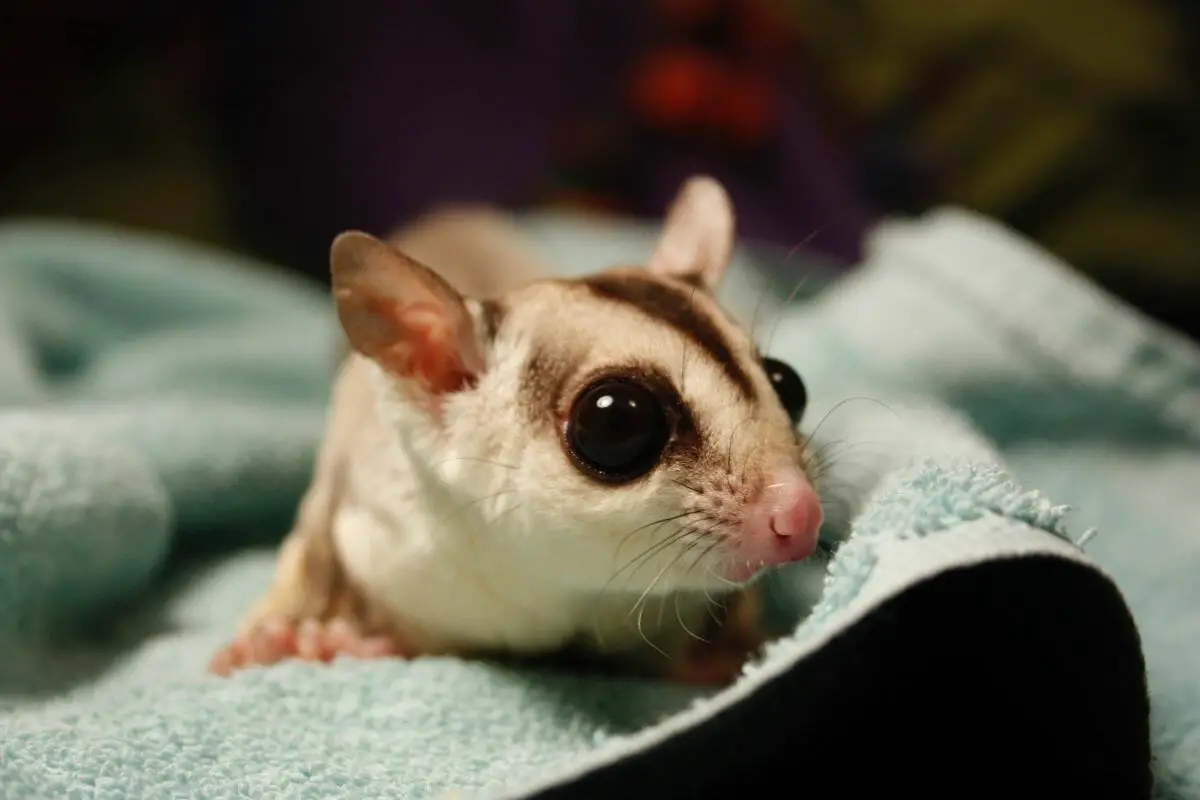
Now that we’ve learned why sugar gliders, especially those with bald spots, can smell more strongly, let’s look at ways to prevent this from happening.
1. Make Sure They Have The Proper Nutrition
As a general rule, the diet of a sugar glider should consist of around 50 to 75 percent approved pellet food, at least 25 percent fresh fruits and vegetables, and around 25 percent of protein, such as crickets, eggs, and meat.
Sugar gliders also need a supply of clean and uncontaminated water that should be changed daily. It’s best to consult with a veterinarian before committing to a specific diet or product called ‘supplements’ for your sugar glider.
There is a lot of confusing information on the exact contents of a captive sugar glider’s diet and your vet should be able to steer you in the right direction, as well as monitor your sugar glider to ensure they’re getting all of the nutrients they need.
2. Clean The Cage
We would advise cleaning the cage in three ways for the best results.
- Daily Cleaning and the use of dry cleaning accessories will enormously help.
Dispose of any old food, change the water, and clean the feeding bowls.
The bowls, trays, and any toys should be cleaned with hot water and soap and then given a deeper clean and sterilized every three months.
- Every Two to Three Days
Line the bottom of the cage with a safe and absorbent material. Then you can replace the lining every two to three days.
- Every Two to Three Weeks
Clean the cage thoroughly with a mix of vinegar and hot water.
It’s best to not wash all of your sugar glider’s toys, pouches, and other items at once. Make sure something is left in the cage that has your sugar glider’s scent as this will prevent them from over-marking.
3. Neuter Your Sugar Glider
Male sugar gliders usually smell stronger than females do and the only way to combat this is to get your male sugar gliders neutered.
4. Litter Train Them
Some owners have been able to encourage their sugar gliders to only defecate in a certain area of the cage but this isn’t something that all sugar gliders will be willing to do.
Luckily, you will soon notice the routine of when your sugar gliders poo, as they are creatures of habit. Typically, they go to the bathroom after waking and then won’t need to for several hours.
With a product called baby wipes, you can stimulate sugar gliders into defecating only when they are out of the cage or pouch.
5. Use Pine Pellets
Although pine trees are toxic to sugar gliders, pine pellets are safe because they’re kiln-dried.
These pellets are great at collecting waste and eliminating pet odor, making them ideal for sugar glider cages.
6. Get An Air Purifier
Odds are, there will always be times when your sugar gliders have a scent you don’t want to smell.
No matter how successful you are at litter training them, there’s always the chance they will defecate and leave a scent in the air. A product called an air purifier can take care of this musky odor and leave your room smelling fresher.
FAQs
How bad do sugar gliders stink?
Sugar gliders have a natural musky scent that is generally not unpleasant. However, if their diet is incorrect, if they are not properly litter trained, or if they are actively scent marking, the odor can become more pronounced. Regular care and cleaning can manage and minimize any strong smells.
How to make sugar gliders less smelly?
To make sugar gliders less smelly, ensure they have a balanced diet, clean their cage regularly, neuter males, and attempt litter training. Additionally, using pine pellets in their cage and an air purifier in the room can help reduce any lingering odors.
Do sugar gliders smell as bad as ferrets?
No, sugar gliders do not smell as bad as ferrets. While ferrets have a more pungent and distinct odor, sugar gliders typically have a milder, musky scent. Proper care, diet, and cage maintenance can further minimize any odors from sugar gliders.
Final Thoughts
While sugar gliders have a natural musky scent, it shouldn’t be overpowering with proper care. By maintaining a balanced diet, regular cleaning, and neutering males, their odor can be minimized. Compared to ferrets, sugar gliders generally have a milder scent, making them manageable and pleasant pets.
- What Should I Do If A Koala Bites Me? Safety Guide - 2024-05-30
- Are Kangaroos Born Without Hind Legs? A Fascinating Journey - 2024-05-30
- Animals That Look Like Squirrels - 2024-05-30

